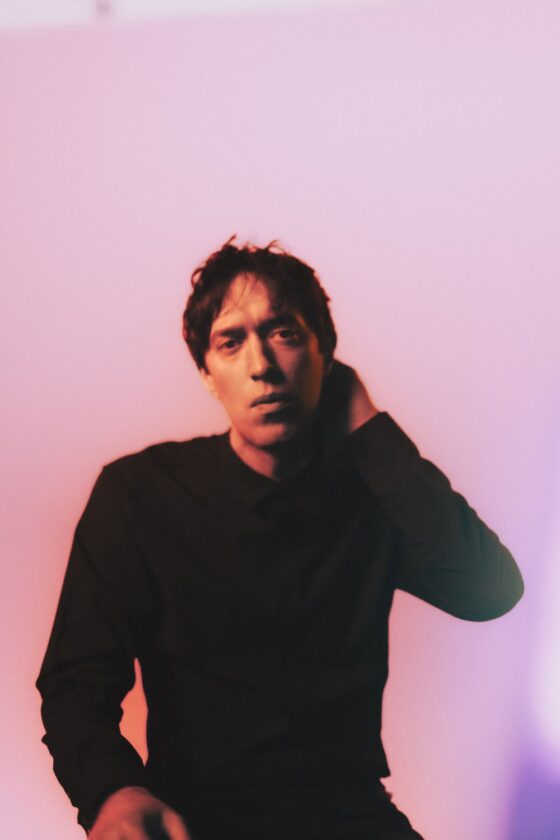A.S Fanning + Jackson D + Rosie Donoghue
A. S Fanning
+ Supports
Thursday 15th June 2023
The New Adelphi Club
£7 Adv /£9 OTD
Berlin-based Irish gothic-folk singer-songwriter A.S. Fanning’s songs are often lyrically driven, taking inspiration from Irish literary tradition and folk music as well as from 60s psychedelia and rock n roll.
Since his debut single ‘Carmelita’, released on 7-inch vinyl in 2015, he has been touring throughout Europe and further afield, showcasing at South by Southwest in Austin, Texas and playing other renowned festivals such as Hard Working Class Heroes (Dublin) and Endless Daze (Cape Town).
His debut album, the self-produced ‘Second Life’, was released in 2017 on Proper Octopus Records, with The 405 calling it ‘an emotional joy ride with songs of devotion and endured heartache…8/10’
“I don’t think there’s any good reason to make an album like this. Not in any logical way.” This is the answer you get when asking the Irish Songwriter A.S. Fanning how he arrived at making an album that is so bleak and apocalyptical it leaves you gasping for air.
The word melancholy is far too weak to describe this. Desperation is not the right fit either. A.S. Fanning seems to be the level-headed chronicler of a perishing world. Realistic/pessimistic. His album “Mushroom Cloud” is far more than that though. In the organic and analogue production of this album, the expansive rock band builds stunning melodic arcs around Fanning’s warm baritone voice. In connection with his inauspicious topics this leads to a bizarre enthrallment. Listening all the way through can feel like staring into a deep dark well for a little too long.
Textually, Mushroom Cloud can be described as an update to Leonard Cohen’s “The Future”. Paranoia, Isolation during COVID lockdowns, climate change, war, autocrats, populists, the internet as a battlefield and the precise registration of each and every moment, while the eyes linger on an advertisement in the timeline.
It’s not getting any more positive than that, even if you are truly looking for that glimmer of hope – “I haven’t really looked for any silver linings in this myself. I suppose the best I can do is to see it as a document of a low point. A sort of scorched earth that hopefully leads to a new beginning.” If it brings some comfort, he at least adds shortly afterwards that writing helps him to build up a critical distance to his own thinking: “I found myself laughing at some of the lyrics I had written, which I think is quite a healthy thing, to be able to take a step back from your darker thoughts and see the absurdity in them.”
A.S. Fanning has never been a particularly cheerful artist. His last album, “You Should Go Mad” (2020) borrows its title from a line in Melville’s “Moby Dick” and circles around paranoia and anxiety. A.S. Fanning never learned a blue-collar trade or earned an academic qualification. He played his first gig at the age of 12, in a pub on the outskirts of Dublin where they would turn a blind eye to the musician’s age. He had his first band with original songs at the age of 16, one year later they would flare-up shortly in the Irish charts. For a while he toured the world playing bass in the backing band of an Irish musician, and in between he made some money playing Johnny Cash covers in the pubs of Dublin. To make ends meet with the meagre income of a musician he moved to Berlin in 2011, to concentrate more on his own songs and their production. The music turned darker, the instrumentation more sparse, and voice and lyrics were brought into focus.
“Mushroom Cloud” is A.S. Fanning’s third Berlin album, and a preliminary peak of this creative period. Except for the title track, all songs were written in a very intense phase within three or four weeks at the beginning of 2022. It is the first time in his solo career that he employs a consistent band line-up throughout an album, working out arrangements with his co-musicians Bernardo Sousa (electric guitar), Dave Adams (organ, piano), Jeff Collier (drums) and Felix Buchner (bass). The album was recorded in only five days in the Impression Recordings studio of Robbie Moore (Idea Farm). Only the overdubs of the Oriel Quartet, written by the Irish composer Irene Buckley, a bit of percussion and a lonely pedal steel guitar in “Sober” were added.
“I was going through a breakup from a thirteen-year relationship at the time. I wrote most of the album during a pretty intense time at the end of the last pandemic winter. I felt claustrophobic and anxious, having been cooped up all winter, mixed with the sadness and uncertainty of my personal situation. In the context of my own life I was trying to get used to the idea of being alone, and of that being enough. When my father died and I moved away from Dublin, I felt I had to recalibrate my sense of what ‘home’ meant. I don’t know if I succeeded but I feel like this album is part of a similar recalibration, of discovering something of myself and becoming comfortable in my own skin.”

